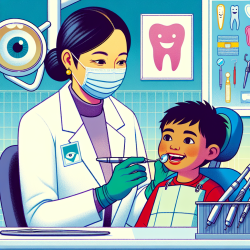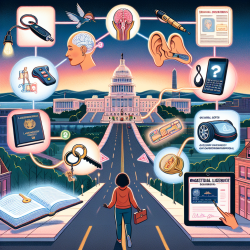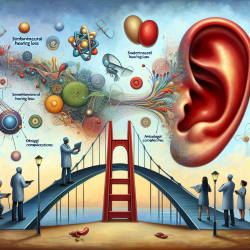Introduction
The medical field is constantly evolving, with new technologies and methodologies emerging to improve patient care and practitioner efficiency. One such advancement is the introduction of single-use rhinolaryngoscopes, which have been gaining attention since their market debut in 2019. A recent study titled "Single-use versus reusable rhinolaryngoscopes for inpatient otorhinolaryngology consults: Resident and patient experience" provides valuable insights into the benefits of these devices over traditional reusable scopes.
Study Overview
The study conducted by Bowen et al. involved 18 residents performing consults with both single-use and reusable rhinolaryngoscope systems over a 12-week period. The goal was to assess the consult experience from both the resident and patient perspectives. The findings revealed significant advantages of single-use scopes in terms of overall consult time, patient communication, teaching opportunities, and ease of use.
Key Findings
- Overall Consult Time: Single-use scopes were rated higher (4.3 vs. 2.2) for reducing consult time, allowing practitioners to see more patients efficiently.
- Multiscope Consults: The single-use option scored better (4.4 vs. 3.1), indicating improved workflow during multiple consultations.
- Patient Communication: Improved communication was noted with single-use scopes (4.6 vs. 2.1), enhancing patient understanding of their condition and treatment.
- Teaching Opportunities: Single-use devices provided better teaching opportunities for residents (4.6 vs. 2.1), fostering a more educational environment.
- Ease of Use: Residents found single-use scopes easier to use (4.7 vs. 2.6), which can lead to more accurate diagnoses and treatments.
Implications for Practitioners
The results of this study suggest that practitioners in the field of otorhinolaryngology can significantly enhance their skills and patient care by adopting single-use rhinolaryngoscopes. These devices not only streamline the consultation process but also improve patient-practitioner communication and provide better educational opportunities for medical residents.
Encouraging Further Research
While the study presents compelling evidence in favor of single-use rhinolaryngoscopes, it also opens the door for further research. Practitioners are encouraged to explore additional studies to understand the long-term cost implications, environmental impact, and potential for widespread adoption in various medical settings.
Conclusion
Single-use rhinolaryngoscopes offer a promising alternative to traditional reusable devices, with clear benefits for both practitioners and patients. By embracing this technology, medical professionals can enhance their practice, improve patient outcomes, and contribute to a more efficient healthcare system.
To read the original research paper, please follow this link: Single-use versus reusable rhinolaryngoscopes for inpatient otorhinolaryngology consults: Resident and patient experience.










